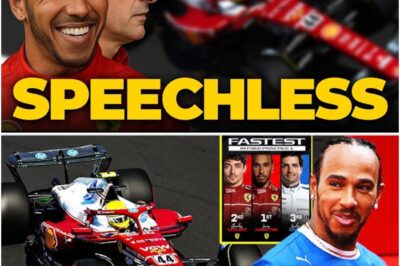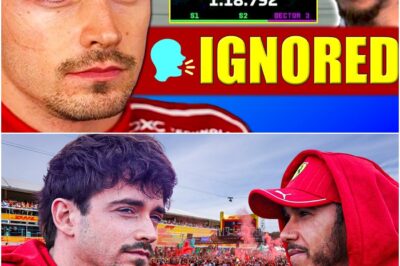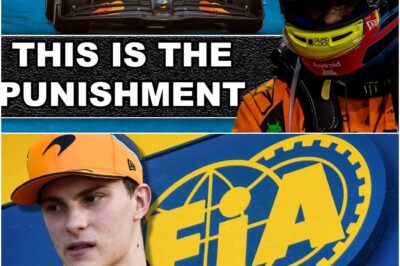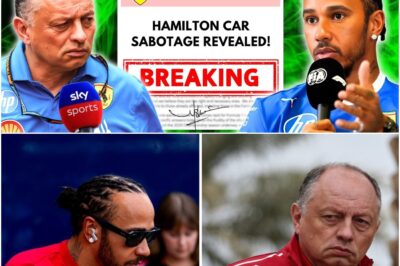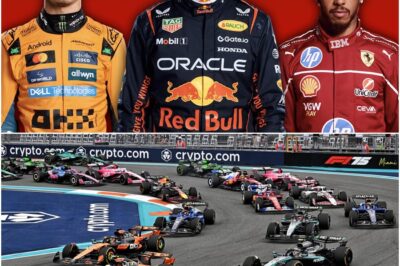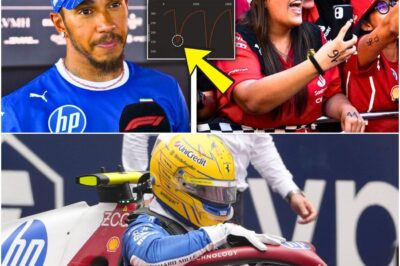In the cutthroat world of Formula 1, talent is the price of admission, but timing, politics, and sheer luck often write the final chapter. Few careers embody this painful truth more than that of Nico Hülkenberg. A driver lauded for his raw speed, remarkable consistency, and a giant-killing Le Mans victory, Hülkenberg has spent over a decade on the grid as one of its most respected talents. Yet, for all the accolades, his career is haunted by a series of agonizing near-misses—ghosts of contracts with Red Bull, Mercedes, and Ferrari that slipped through his fingers at the final, crucial moment. This is the story of the champion that never was, and the unbelievable twists of fate that kept him from the pinnacle of motorsport.

The most recent and perhaps most public of these “almosts” came with Red Bull Racing. In late 2020, the team was in a conundrum. Alex Albon, despite his potential, was struggling to be the reliable rear gunner Max Verstappen needed. The “second seat curse” at Red Bull was a very real phenomenon, a high-pressure role that had chewed up and spit out talented drivers before him. The team needed a proven, dependable, and fast driver who could handle the pressure. Enter Nico Hülkenberg.
Fresh off a stunning super-sub performance for Racing Point (dubbed the “pink Mercedes”), where he jumped into an unfamiliar car and immediately delivered, Hülkenberg’s stock was sky-high. He was the talk of the paddock. Red Bull’s notoriously demanding advisor, Dr. Helmut Marko, saw the appeal. He publicly acknowledged Hülkenberg’s formidable consistency and noted his strong relationship with Verstappen. The fit seemed perfect. Hülkenberg’s smooth, adaptable driving style and comfort with a touch of oversteer appeared tailor-made to tame the notoriously tricky Red Bull chassis, a car that demanded precision and confidence. For a moment, it seemed the stars had finally aligned.
But Formula 1 is a cruel theatre. While Hülkenberg’s case was built on a foundation of solid, consistent excellence, his rival for the seat, Sergio “Checo” Pérez, delivered a single, explosive performance that was impossible to ignore. At the 2020 Sakhir Grand Prix, Pérez was spun around on the opening lap, falling to dead last. What followed was one of the most breathtaking comeback drives in modern F1 history, as he scythed through the field to claim an emotional, unbelievable maiden victory. It was a “loud” performance, a headline-grabbing triumph that screamed resilience and race craft.
In the face of such a spectacular win, Hülkenberg’s quiet consistency, however impressive, was overshadowed. Dr. Marko later admitted that Pérez’s Sakhir miracle was the single deciding factor. It was a brutal lesson: a season’s worth of respect can be undone by one afternoon of glory. While whispers of Pérez’s significant financial backing from Carlos Slim also circulated, the sheer narrative power of his win was undeniable. The Red Bull door, once wide open, had been slammed shut in Hülkenberg’s face by a single, perfectly timed victory.

Rewind the clock to 2012, and you’ll find another top-team door creaking open for the German. This time, it was the Silver Arrows of Mercedes. The team was on the cusp of its hybrid-era dominance, building the foundations of a dynasty. Ross Brawn, the mastermind behind so many of Michael Schumacher’s titles and the then-Team Principal of Mercedes, was a huge admirer of Hülkenberg. He saw the young German as the ideal partner for Nico Rosberg. The deal was practically done; Hülkenberg was Mercedes’ man.
But then, a seismic shift occurred in the driver market. Lewis Hamilton, in a move that shocked the F1 world, decided to leave the comfort of his career-long home at McLaren for the unproven potential of Mercedes. It was a gamble, a leap of faith instigated by the legendary Niki Lauda. When a driver of Hamilton’s caliber—a proven World Champion with transcendent talent—becomes available, plans change. Brawn himself later confirmed it: had Hamilton not made that fateful decision, the seat was Hülkenberg’s. Once again, he was in the right place, but at the exact wrong time. He was the second choice to a future seven-time World Champion. It’s impossible to hold that against any team, but the sting of what could have been—partnering Rosberg in a car that would go on to dominate the sport for years—is a particularly painful “what if” in the Hülkenberg saga.
Perhaps the most romantic and coveted destination for any driver is the scarlet red of Ferrari. In 2013, that dream too was within Hülkenberg’s grasp. Driving for Sauber, he was putting in stellar performances, consistently outperforming his machinery and catching the eye of the Scuderia. Ferrari was looking to replace Felipe Massa and pair a new driver with Fernando Alonso. Hülkenberg was at the top of their list. A contract was reportedly on the table.

But just as with Mercedes and Red Bull, fate intervened in the form of a World Champion. Kimi Räikkönen, the “Iceman,” had successfully rebooted his career at Lotus and became a free agent. The allure of bringing back their 2007 champion was too strong for Ferrari to resist. The Hülkenberg deal was shelved in favor of the prodigal son’s return. Adding insult to injury, Hülkenberg’s own success may have inadvertently worked against him. His incredible win at the prestigious 24 Hours of Le Mans in 2015, while showcasing his immense talent and versatility, cemented his brand as a “safe pair of hands.” He was reliable, fast, and professional—but perhaps not the “star headliner” that a team like Ferrari, with its penchant for superstar drivers, was seeking.
Furthermore, the significant rule changes for the 2014 season introduced another cruel factor: weight. Hülkenberg, being one of the taller and naturally heavier drivers on the grid, was at a disadvantage. With the new, heavier power units, every kilogram mattered. Lighter drivers allowed teams more flexibility with ballast placement, a key tool for perfecting car balance. In a game of marginal gains, his physical stature, something entirely out of his control, became a tangible drawback.
Three of the sport’s most dominant teams—Red Bull, Mercedes, and Ferrari—all came knocking, only for circumstances beyond his control to snatch the opportunity away. His career has been a masterclass in resilience, as he continues to be a highly respected and fiercely competitive midfielder, but it will forever be defined by the shadows of these missed chances. It’s a poignant reminder that in Formula 1, the line between a celebrated journeyman and a multi-time world champion can be as thin as a single rival’s victory, a competitor’s signature on a contract, or even a few unfortunate kilograms on the scale. The story of Nico Hülkenberg is a heartbreaking symphony of “almost.”
News
Lewis Hamilton’s stunning performance at the Monza GP left Ferrari utterly speechless. The British driver delivered an unexpected result that has raised eyebrows in the paddock. Ferrari, caught off guard, could hardly believe what they were witnessing. Was this a turning point in the season?
Ferrari’s Unexpected Revival: How Lewis Hamilton is Turning the SF25 into a Championship Contender The paddock at Ferrari has been…
Monza Drama Unfolds: Ferrari’s Stunning Response to the Tow Controversy As the Monza drama continues to make waves, Ferrari has issued a statement that could shift the narrative entirely. The tow controversy has left many wondering what really happened during the race. Ferrari’s response raises more questions than answers, but it’s certainly a game-changer.
F1 Italian Grand Prix: Max Verstappen’s Stunning Pole, McLaren’s Challenge, and Ferrari’s Tough Decisions The 2025 Italian Grand Prix has…
“Monza Chaos: Piastri’s Rule Breach Leads to Unexpected Verdict!” In a stunning twist after the Monza race, Piastri has received a new verdict following his controversial breach of rules. Fans are left questioning the future of this young driver!
Formula 1 Italian Grand Prix: Updates from Friday Practice at Monza The Italian Grand Prix at Monza always promises high-speed…
Ferrari’s Dirty Laundry Exposed: Fred Vasseur Blames Sabotage for Hamilton’s Trouble at the Dutch GP – What Does This Mean for Ferrari’s Reputation and Their Chances in the 2025 Championship?
The Sabotage Scandal: Ferrari’s Darkest Moment Since the Dutch GP After the chaos of the Dutch Grand Prix, the silence…
“The 2025 Italian GP: A Rollercoaster of Emotions – Winners, Losers, and the Moments You Can’t Miss!” Monza’s 2025 Grand Prix proved to be one of the most dramatic in recent years. As the season heats up, which drivers and teams celebrated their triumphs, and who was left reeling from devastating setbacks? Click now to see how the race unfolded with stunning victories and heartbreaking losses.
Monza 2025: The Thrills, Chaos, and Drama of the Italian Grand Prix The 2025 Formula 1 season has been nothing…
“Revealed: How Hamilton’s Telemetry is Set to Revolutionise Ferrari’s Monza Strategy!” Ferrari’s engineers have found something extraordinary in Hamilton’s telemetry data after qualifying at Monza. This revelation could drastically alter the team’s strategy and performance at the Italian Grand Prix. With crucial insights from Hamilton’s data, Ferrari might just have what they need to make a strong push for victory.
Ferrari’s Rebirth: Hamilton’s Monza Masterclass Monza is a track where speed, precision, and strategy come together to create some of…
End of content
No more pages to load

